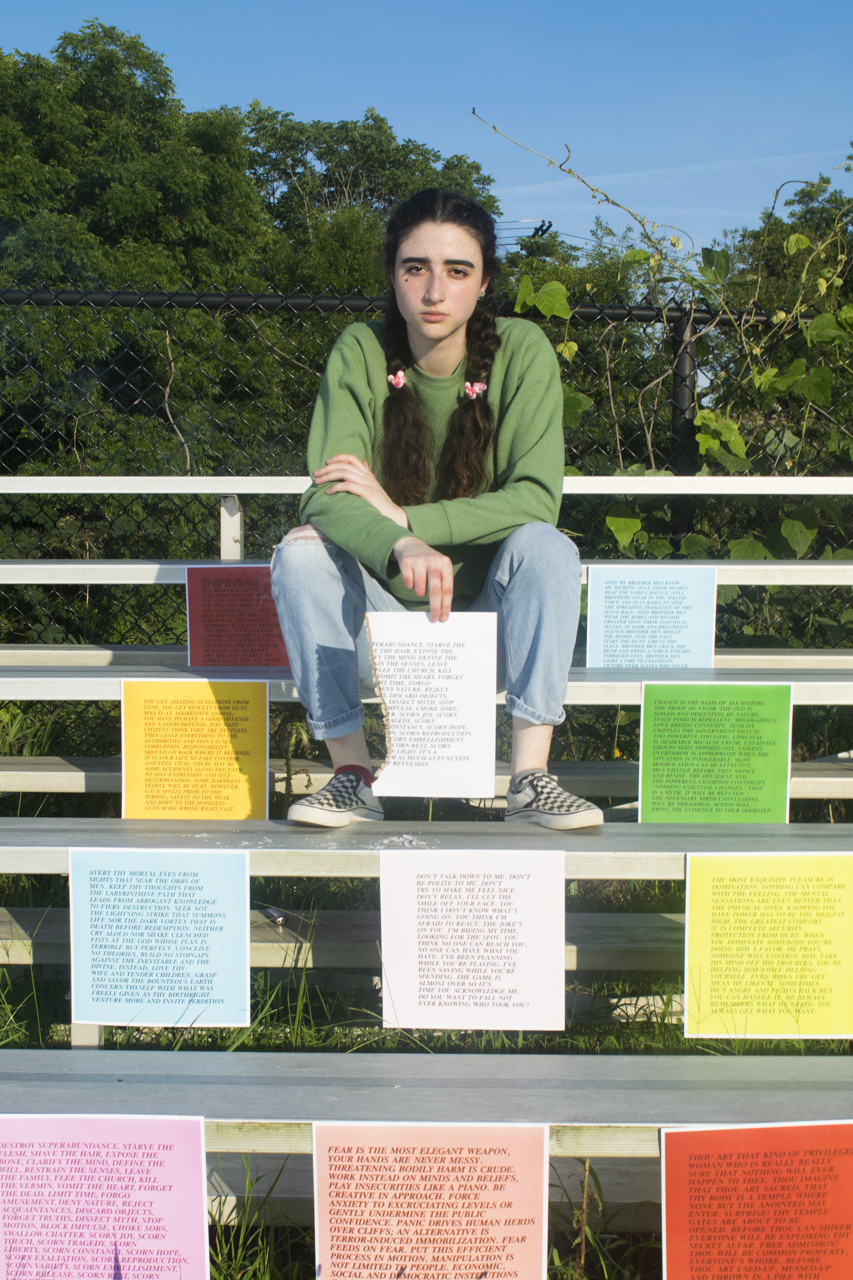Girl on Fire –
“Speak your mind,” – a “truism” of sorts, and a way of life for artist and self-described feminist killjoy, Celina Odeh. Celina takes her inspirations from many sources but there is one contemporary female artist/writer that has been especially influential in her work and life philosophy recently. That artist is Jenny Holzer. Whether you recognize the name or not, you may already be familiar with some of her work. Holzer is a neo-conceptual artist whose main focus is the delivery of words and ideas in public spaces. She is well-known for her large LED signs installed in the eighties which speak to aspects of contemporary society. Celina and I met to shoot some photos and chat about Holzer. The following is Celina’s take on her work. (After the interview and photos, keep scrolling for more information on Jenny Holzer.)
How did you come to encounter Holzer’s work and what was your first impression of her work?
I first encountered Jenny Holzer’s work (Inflammatory Essays) on tumblr. I was taken aback by its font choice and bluntness. It’s reoccurrence helped solidify its importance. I loved how stylistically it could be replicated but verbally it was so profound that even if I knew how to create its composition, I couldn’t. Something about it was so close yet so out of reach that it sparked my immediate attention and care.
In what ways did her work speak to you or affect your thinking?
As with any new piece of information I was both burdened and excited.
Has the meaning of the work changed or evolved for you over time and life experience?
It changed in that its become more important. Old works unknown have become more clear overtime.
How has the work influenced your own work?
I am now not afraid to incorporate text in my artwork. I am not afraid of allowing just type on a page to be the art piece itself.
Why do you feel its important for women to examine Holzer’s work?
Because everyone needs a mother.
More About Jenny Holzer
The public and anonymous aspects of Holzer’s text-based art are part of its power. Her intention is to short-circuit the normally passive reception of information, sparking debate and critical thinking about her message.
Describing her Inflammatory Essays, the Holzer studio states they were “a collection of 100-word texts that were printed on colored paper and posted throughout New York City. Like any manifesto, the voice in each essay urges and espouses a strong and particular ideology. By masking the author of the essays, Holzer allows the viewer to assess ideologies divorced from the personalities that propel them. With this series, Holzer invites the reader to consider the urgent necessity of social change, the possibility for manipulation of the public, and the conditions that attend revolution.”
To see all of the Essays and learn more about this piece, visit The Tate website here.
To read more on Holzer’s work and life click here.